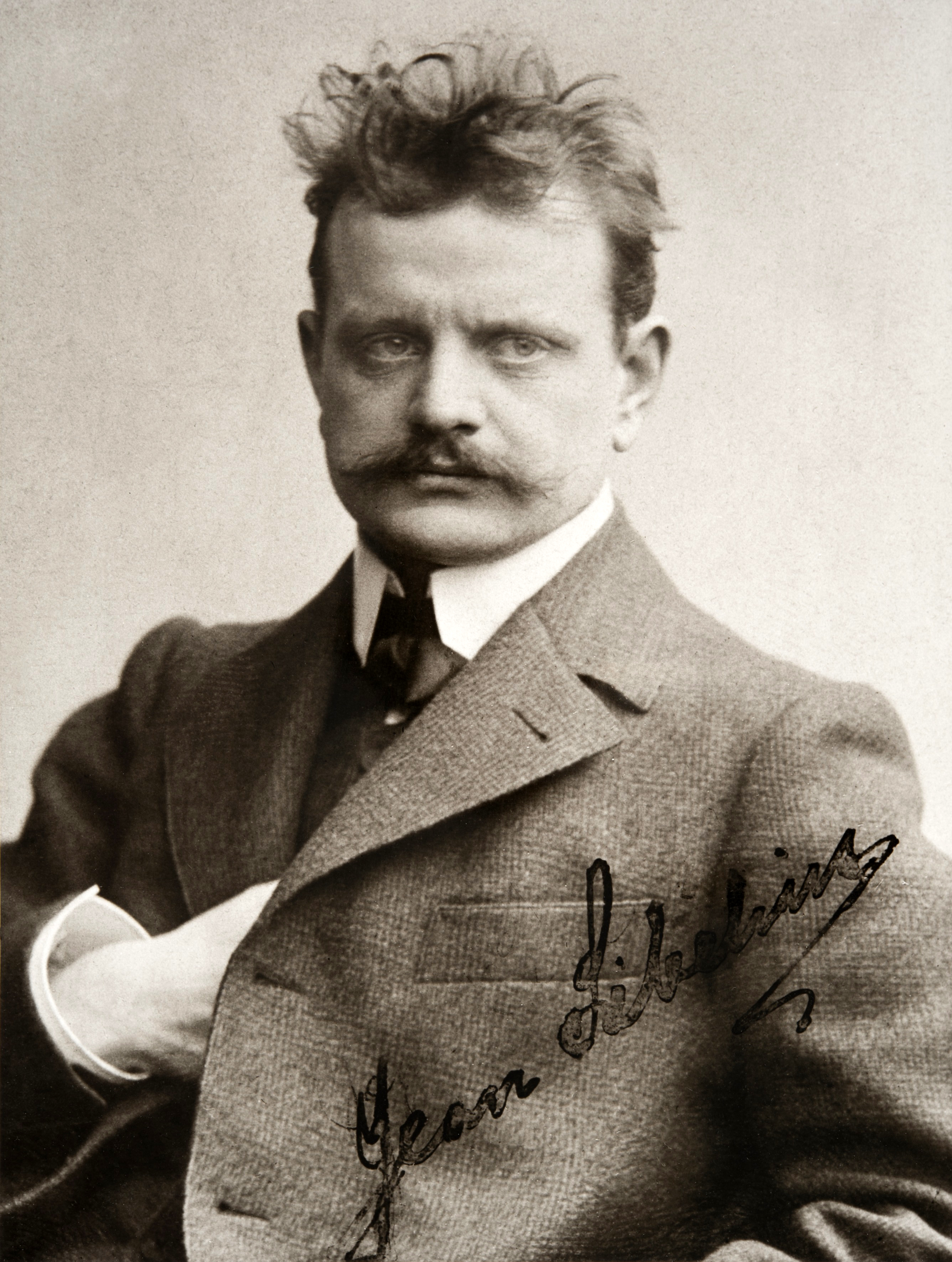Until recently, Jean Sibelius’ great acclaim in America during his lifetime (1865–1957) probably did him more harm than good. Being embraced by arch-conservative critics as the one contemporary composer they could get behind made him no friends among the avant-garde, nor did his popularity in the (shudder) mass medium of radio. And these style wars obscured Sibelius’ genuine innovativeness, which has nothing to do with its surface dissonance level—as in the angst-laden tangles of Schoenberg or the dry crunch of Stravinsky. What makes his best music sound so remarkably unlike anything written earlier lies deeper—in its rhetoric. Fragmentation, isolation, discontinuity: These were his strategies, deployed on a broad, even heroic, canvas.
Take the opening of the finale of his second symphony: a main theme all of seven notes long (and even this incorporates two distinct three-note cells); then a trumpet fanfare; an upheaval of horns; a breathlessly climactic string scale. All these separate gestures are bound only by a hypnotic grinding in the basement of the orchestra—and the result is uncommonly stirring. Inspired by the environment of his native Finland, Sibelius’ materials and methods evoke, above all, natural processes—in painterly terms, they’re landscapes without figures. (Another example: Present in practically all his orchestral music is rushing string figuration that, like a snowmelt-flooded brook, is constantly in motion but never escapes its banks—never goes anywhere.)
That he could clothe all this in a harmonic language that never lands too harshly on even the tenderest ear made him both beloved and reviled. Today, at last, we’re able to appreciate his individualism without aesthetic side-taking getting in the way. And those strategies of fragmentation? They turned out to be the foundational tenets of postmodernism—and thus your average orchestral work of 2015 sounds a lot more like Sibelius than like his then-progressive contemporaries. Who’d have guessed? For the next three weekends, the Seattle Symphony is marking the composer’s 150th with a mini-festival: all seven of his symphonies, two or three a weekend, plus tone-poems, his Violin Concerto, and a special chamber-music concert on March 15. Benaroya Hall, Third Ave. & Union St., 215-4747. $20–$120. March 12–28; see seattlesymphony.org for exact schedule.




